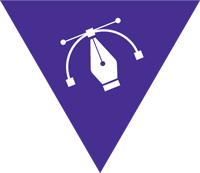
There are two worlds of a legal counsel – private practice and in-house role. In the last issue, we analyzed the In-house Counsels side through this first of the 2-part series. In this issue, we are going to look at the pros and cons of each of the private practice world, the differentiators and the skills required to excel in the respective chosen path.
ROLES & RESPONSIBILITIES
A law firm Partner is responsible for various elements of the smooth operations of the firm. That includes everything from business development, client relationship management to human capital, firm structuring and financial management.
Let’s list down the responsibilities and skills required to handle them accordingly:
Business Development
Developing BD skills across the lawyers within the firm
Identify firm’s strengths & weaknesses, and highlighting them to generate new revenue
Cross-sell across existing clients and verticals within the firms practices
Financial Management
Setting targets for the firm for the financial year
Creating and executing business plan to achieve targets across respective practices
Maintaining key profit drivers, and maintaining financial discipline
Eliminating loss making financial elements, and managing effective ROI
Client Relationship Management
Understanding the clients’ business, and becoming not just their legal, but their strategic partners
Ensuring delivery of quality service, in a streamlined and cost-effective manner
Develop & implement efficient CRM strategies and protocol across practices and lawyers within the teams
Resource Management
Create a transparent and fair hierarchy structure
Implement an annual 360 degree appraisal process
Develop and put into action retention measures for star performers
Deal with underperforming staff
Develop, implement & encourage CLEs and mentor-mentee programmes
THE FIRM CANVAS
Deriving from the skill requisites and the responsibilities of a law firm partner, let’s have a re-look below at a structure of an ideal private practice firm:
Operations: This department’s functions touches all aspects of the business. The operations department influences other functions within the law firm that contribute towards the mechanism of the firm’s overall functioning. The head of this department ensures that a business has the proper procedures and systems in place, to effectively grow the organization and to ensure financial strength and operating efficiency. The Chief Operating Officer effectively serves as an overall glue for the firm as a business unit.
The Operations Department also focuses on developing and maintaining the financial well-being of the firm. This team is responsible for providing the firm’s management team with financial projections and accounting services, to enable the firm to make informed decisions for strategic growth. The accounting team is also responsible for billing and payments, client follow ups in case of receivables and other such functions that can help maintain a steady working capital for the firm to function.
Strategy & Business Development: The crucial role of this department is to build a firm’s brand in the market through strategic positioning and business development. A strategically positioned law firm resonates with us in a significant way, and create its own individuality. The firm should own the category it aspires to be positioned in, and ideally should be the first in a position. Differentiation is the key!
Brands which are based on an idea vs. a service product, can help the firm to sustain on its own terms and yet grow as a business. “Client oriented,” “Going the extra mile,” and “Attention to detail” are not positioning statements. The idea has to big enough, and the firm has to be keen on creating a balanced approach and ingrain their philosophy not just internally but to its target market as well.
This function focuses on the firm’s growth in terms of business, but in a strategic manner while aligning with the firm’s long term objectives. The team may focus on a variety of high level strategic tasks, including leading the development of the firm’s growth through mergers, acquisitions or company reorganizations, while being truly involved in creating opportunities and accepting ownership of growing the company’s business.
Human Resource Management: An efficient HR department can enhance the firm’s work force strength by planning, implementing, and evaluating employee relations and human resources policies, programs, and practices. Your employees are your assets. In a service based industry, your talent is your product and your capital, and it is crucial to value and develop your in-house talents. Investing in the development of your talent is a guaranteed approach to not only new client acquisition, but also ensuring your existing clients are satisfied. In this highly competitive industry, clients have too many choices for legal service providers.
Also, in-house talent development sends a strong message to your clients: “We have a commitment to provide you with the best.” You also send an important message to your team: “We value your contribution and want to ensure that you have a fulfilling and successful career with us.”
This article was first published in the Lex Witness November 2018 issue.
Pramita Sen is the Fouder & Principal Strategist at WeYou Partners. WeYou Partners is a niche consulting & advisory firm, which offers a unique blend of industry knowledge coupled with effective and proven street-smart solutions.








